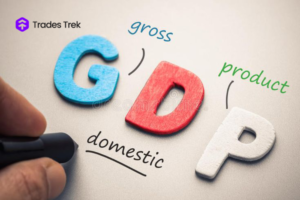Stock market fluctuations are inherent to their nature. We cannot avoid the stock market’s inherent volatility. As a result, investors need to develop the ability to generate a sizable return even in uncertain circumstances.
Seeing a stock with the potential for a considerable return increase in value one day and a decline the next can be discouraging. Exist any tactics with a 100% certainty of potential returns? Most definitely not. However, there are tried-and-true methods that investors employ successfully during turbulent times. This article will disclose these tried-and-true tactics; continue reading as we examine them.
Maintain a diversified portfolio at all times.
The importance of keeping a well-diversified portfolio as an investor will never go out of style. You must maintain a diversified portfolio even in a volatile market to guarantee a sizable return. You can lower risk while maintaining the possibility of long-term returns by dividing your funds among various asset classes, such as stocks, bonds, and cash. By diversifying, a stock that isn’t performing as well might be balanced out by a stock that is, which lessens the impact of volatility. By investing in many sectors that would have varied responses to the same incident, its primary goal is to reduce losses.
Bonds, often viewed as lower-risk investments than stocks as their prices remain relatively steady even when stock markets experience volatility, are used to balance investments in high-risk, high-return securities such as equities. They also offer consistent income through interest payments made throughout the bond’s life. They are, therefore, a desirable choice for investors who want more excellent portfolio stability without sacrificing the chance to profit from changes in the stock market. You can diversify your financial portfolio in a variety of ways.
Spread out your investment over various vehicles, such as index funds, that include a range of businesses and holdings.
You can distribute our investment across several sectors. For instance, if you invest in the transportation sector, it would be incorrect to do so in a single area, such as air transport. This is because poor management of the flight company or any adverse effects on the company will significantly impact your portfolio. However, diversifying within the same sector, such as by investing in a bus company, will help cushion the fall because you are likely to make more money because those who use flights will embrace the bus service.
Spreading your assets across several businesses and sectors also gives you backup options in case something terrible happens to one particular industry.
Constantly stay invested.
You need to pay less attention to short-term volatility to experience a significant return on investment. And continue to invest. It can be challenging to restart investing after hitting “pause.” You could be concerned about losing money if the market is declining. So you sit back and wait.
You could worry that the chance has passed if the market surges. So you hold off again, planning to invest when the markets decline further.
If you decide to invest, stick with it no matter what the market does and support it at least once or twice monthly. Regular investors are more likely to develop and follow a financial plan. Since their investments are more well-diversified, they can maintain their path even when markets become erratic. As a result, they have a higher chance of experiencing better investment returns and building up their wealth.
Take your time with the ideal moment. There is never a good time. Start right away. You see, you even out the costs of your assets when you invest in various market conditions. You’ll occasionally pay less for purchases, and other times you’ll pay more, but everything balances out in the end, and that can be to your advantage.
Refrain from constantly entering and exiting the market.
The method most inexperienced investors take is always to resist the urge to exit the market and wait until they believe it is secure to jump back in. But that’s the incorrect way to go about investing. Knowing that investing will always be volatile periods can help you avoid entering and exiting the market. The ideal strategy is to take advantage of every market moment, even the most volatile ones.
Another return killer is shifting into and out of positions quickly. The transaction expenses alone can kill you, not to mention the short-term tax rates and the opportunity cost of missing out on the long-term returns of otherwise investments, unless you’re an institutional investor with access to low commission rates. Learn not to closely monitor the market during erratic market fluctuations to prevent making irrational decisions.
Do not allow these market changes, even significant ones [like the financial crisis]. Never, ever, ever be in or out of the market and change your mind.
Keep a long-term perspective.
The term “long-term horizon” describes investments with a ten-year or longer time horizon for profit accumulation, such as retirement savings. The time horizon refers to the length of time an investor maintains an investment before a need for the money materializes. Generally, long-term investors are more ready to assume more significant risks in exchange for bigger rewards.
To Sum Up
Avoid basing all of your investment decisions on recent market fluctuations. It would help if you prepared yourself for market drops throughout your investment career, even though we realize they are not the finest things investors look forward to. But it isn’t easy to remain still when the market is falling. “Shouldn’t I be doing anything?”, you find yourself asking. Even though it’s emotionally challenging, sticking with it could be better for your portfolio. This advice does not imply that you should cling on tenaciously. Instead, avoid being swayed by noise and anxiety and consider an investment’s potential for growth and its place in your portfolio. Always remember that selling equities when the market declines might turn temporary losses into permanent ones.




